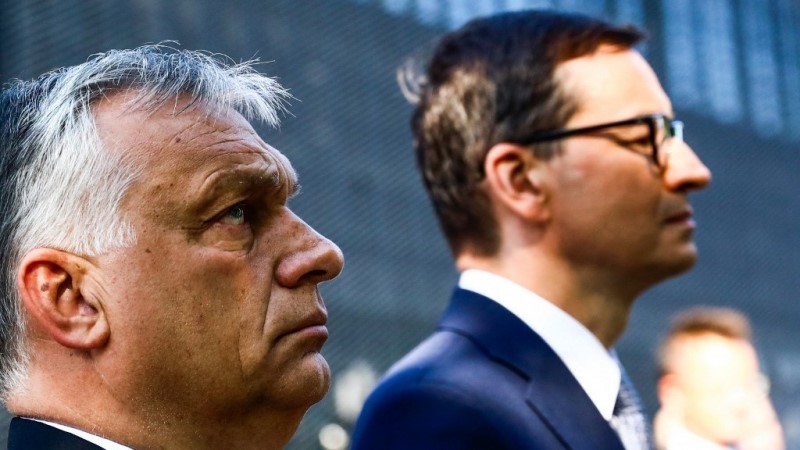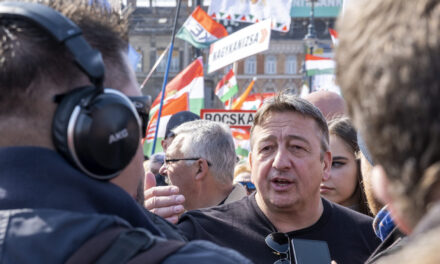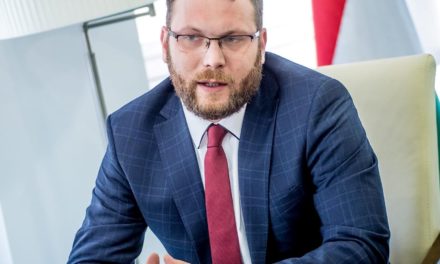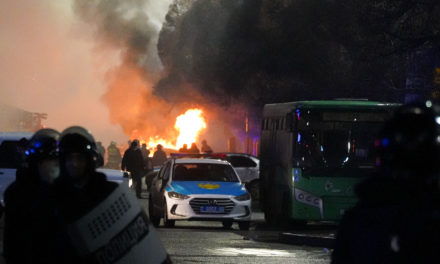Earlier, Prime Minister Viktor Orbán and Polish Prime Minister Mateusz Morawiecki also stated that they do not support the Brussels migrant pact.
The topic of migration was not included in the joint statement of the informal meeting of the European Union heads of state and government in Granada, but they formulated a unified position regarding the expansion and strategic autonomy of the community on Friday.
At the closing press conference of the event, the Prime Minister of Spain, Pedro Sánchez, deemed the conference a success, at which, according to him, the European leaders sought answers to questions such as what will be its future, how many countries will make up it, how can decision-making be more effective, more competitive, more resistant to Economy.
Pedro Sánchez said: they defined the meaning of open European strategic autonomy by dividing it into areas, identified pending situations, vulnerable points and the possibility of strengthening. In his opinion, the most important issue in the debate about European enlargement is the adaptation of European policies, the implementation of institutional reforms and the decision whether the enlargement should be gradual or complete.
In a joint statement published after the summit held in the southern Spanish city, EU leaders recalled that the original main objective of the EU was to ensure peace, security and economic prosperity on the continent.
Although the coronavirus epidemic and the Russian war against Ukraine tested its resilience, the union was able to make important decisions to protect the population and economy of its member countries. Thanks to this, the EU's energy dependence has significantly decreased, and the member states have also taken steps to better guarantee their own security. In parallel with the support of Ukraine, Europe's defense capabilities were significantly increased
- they stated, adding that the war also highlighted the strength and importance of transatlantic cooperation.
The member states confirmed their determination to increase their defense readiness, the mobility of their military forces, and to take action against IT and so-called hybrid warfare (based on non-military means) threats, as well as information manipulations from abroad. They stated that the EU will increase its cooperation with its partners in all regions of the world in order to jointly defend and further develop the system of rules that ensure international order, make the multipolar international system fairer, and prevent further fragmentation on the international scene.
The leaders of the member states also emphasized that they are determined to increase the competitiveness of the EU, to strengthen the position of the Union in the world as the "engine of industry, technology and trade" in the "high added value" sectors that enable competition with other global powers. In addition to reducing external dependencies, this goal is served by strengthening the single internal market, prioritizing digitalization and environmentally friendly technologies, and increasing research work and professional qualifications in the Union.
According to Ursula von der Leyen, President of the European Commission, the summit was about preparing for the future. He recalled: 18 months ago, after the outbreak of the war in Ukraine, the leaders of the member states adopted a declaration in Versailles for a safer, more competitive Europe with greater defense capacities, energy independence, and a robust economy.
Taking stock now, it can be said that it was possible to provide massive financial and military support to Ukraine, to significantly reduce the proportion of energy coming from Russia, its crude oil to 6 percent, and piped gas to 10 percent. At the same time, thanks to the development of renewable energy sources, "now for the first time we can declare that we have produced more electricity with solar and wind energy than with gas," he added.
The chairman of the committee also touched on the fact that the operative part of the management of migration was at the center of the discussions at the meeting. According to him, Europe must work together as a team on this issue.
"This is not the first and last time we discussed migration"
- said Charles Michel, who as the President of the European Council issued a separate statement after the summit.
In the document, he emphasized the importance of immediately and decisively dealing with illegal immigration, a comprehensive partnership based on mutual benefits with the countries of origin and transit, the fight against the causes of migration, the provision of opportunities for legal migration, more effective protection of external borders, and the fight against human trafficking, among other things.
He emphasized the respect of international legislation, the values and principles of the Union, and the protection of fundamental rights.
As known,
Prime Minister Viktor Orbán stated before the summit that there is no chance of an agreement on migration between the leaders of the European Union member states.
He added: this is politically impossible, because they previously agreed that they would unanimously decide on the regulation price for migration, but this was recently changed, and the package was still forced through "legally forced" bypassing Hungary and Poland.
Polish Prime Minister Mateusz Morawiecki agreed with the Hungarian Prime Minister, who stated:
Poland firmly rejects the distribution of refugees among EU member states based on the "dictat" coming from Brussels and Berlin.
Mateusz Morawiecki confirmed after the meeting that he rejected the part of the joint statement planned to be issued from the summit that dealt with migration.
"A diplomat from Brussels said that Poland and Hungary are preparing to block the final declaration of the EU summit, specifically because of the migration part"
- said Csaba Joó, public media reporter, on Friday afternoon when he checked in from the location of the summit.
So it seems that the part of the final document of the EU summit on migration failed due to Hungarian-Polish resistance.
"One by one, the topic of migration was left out of the final statement, which surprised many people"
Csaba Joó, public media reporter, signed in from Granada.
"The important sentence of Viktor Orbán's statement, which he said this morning, that Poland and Hungary were legally raped, made big waves in the international press"
- He told.
He then added that the news reports of the international press - which were about Granada - echoed the words of Viktor Orbán. From this, it can be concluded that migration is an important issue, and a debate has now started about it, he pointed out.
Viktor Orbán and, among others, the Polish Prime Minister Mateusz Morawiecki clearly stated that there will be no agreement if the EU member states want to impose this migrant pact
- reminded the reporter.
However, an agreement was reached on another topic
The member states have agreed that the European Union should be enlarged, but the positions on this subject change from day to day.
Before the EU summit, among others, Dutch Prime Minister Mark Rutte and Western European heads of state and government clearly called for the confirmation of Ukraine's EU candidate status as soon as possible, and then for its membership. That has changed now, since
Mark Rutte, for example, said that he does not at all support putting Ukraine ahead of other candidate countries
- we learned from the final statement of the EU summit.
He said that by 2030, he cannot imagine that the current number of 27 members of the union will increase. By the end of the summit, Olaf Scholz and Emmanuel Macron were of the same opinion, the M1 correspondent summarized.
Featured image: MTI/EPA-PAP/Leszek Szymanski












